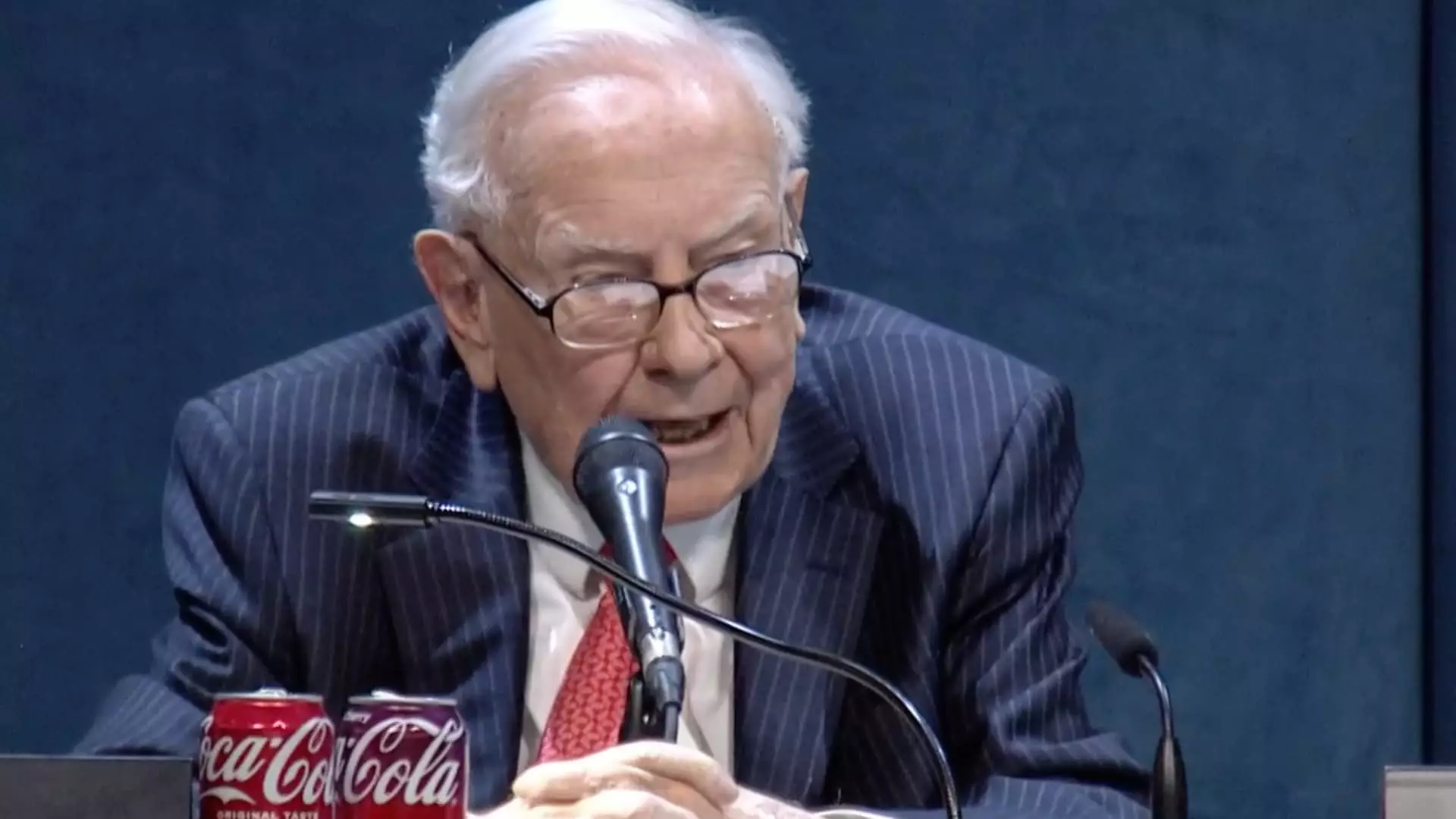In recent years, the discourse surrounding global trade has shifted dramatically, particularly with the rise of protectionist policies that threaten to unravel decades of economic integration. One of the most vocal critics of these hardline tactics is Warren Buffett, the renowned investor and CEO of Berkshire Hathaway. At a recent shareholder meeting, he articulated a perspective that is both disheartening and enlightening: punitive tariffs are not just economically detrimental, but they can lead to a deterioration of international relations and economic stability. Trade, as Buffett suggested, is not merely a transactional exchange—it’s a conduit for global prosperity that should connect nations rather than drive them apart.
The imposition of tariffs has often been justified as a means of protecting domestic industries; however, this protectionism is akin to building walls that inadvertently isolate a country from a wider world of opportunities. Buffett’s assertion that “trade should not be a weapon” resonates deeply in a context where economic isolationism can lead not only to market instability but also to geopolitical strife. The path we tread with these tariffs resembles a reckless gamble, jeopardizing the very foundations upon which our economic success has been built.
The False Promise of National Security
At the heart of these protectionist policies is a misguided belief that they enhance national security. However, the truth is far more nuanced. The thriving global economy hinges on interdependence—the notion that countries are not just trading partners, but also allies in fostering mutual growth. Buffett’s warning about viewing trade through the lens of a “weapon” underscores the perilous nature of turning alliances into adversarial relationships. When leaders prioritize hostile negotiations over collaboration, they fail to recognize that economic vitality worldwide will ultimately benefit domestic prosperity.
Moreover, as tariffs rise, so too does the risk of escalating tensions with trading partners. The retaliatory measures from countries like China result in a tit-for-tat scenario that can spiral into full-blown trade wars. The adverse consequences of such conflicts often include increased consumer prices and reduced market options, all while the supposed “protection” is only as effective as the number of people convinced of its necessity. A reality check reveals that isolation can weaken, rather than fortify, a nation’s economic standing in the long run.
The Broader Economic Landscape
Buffett’s remarks come at a pivotal time when the U.S. economy shows signs of tremors—evident in the recent contraction of GDP for the first time in over a year. His insights are particularly pertinent as Berkshire Hathaway grapples with the uncertainties posed by tariffs and geopolitical volatility. In a marketplace characterized by uncertainty, Buffett’s cautious stance in liquidating stocks indicates a larger trend of investor anxiety, reflecting an unwillingness to engage with economies that appear erratic and untrustworthy.
It’s fascinating to observe how a company like Berkshire, which spans diverse sectors such as insurance, energy, and retail, finds itself caught in the crosshairs of ill-considered trade tactics. If a conglomerate of its stature is feeling the strain of these policies, then small and medium enterprises are undoubtedly facing even greater challenges. The cumulative effect of tariffs can ripple through the economy, affecting employment rates and overall productivity.
Rethinking Global Engagement
In light of Buffett’s criticisms, it is essential for policymakers to rethink their approach towards global trade. Rather than viewing other nations through a lens of suspicion, the focus should shift toward fostering cooperation and dialogue. An attitude of openness could not only mitigate the risks associated with protectionism but also infuse the global economy with renewed vigor. In a world where economic landscapes are continually evolving, the best strategy may not be to isolate but to innovate—embracing the undeniable interconnectedness of our societies.
Ultimately, the dialogue around trade policies is not merely economic; it is a reflection of our values as a nation. By practicing restraint and favoring engagement over division, we can aspire to leverage our historical economic prowess to benefit not just our citizens but the global community as well. In this context, embracing trade aligns with the center-right belief in individual and collective prosperity, emphasizing that a flourishing world does not detract from our own success, but rather enhances it.

